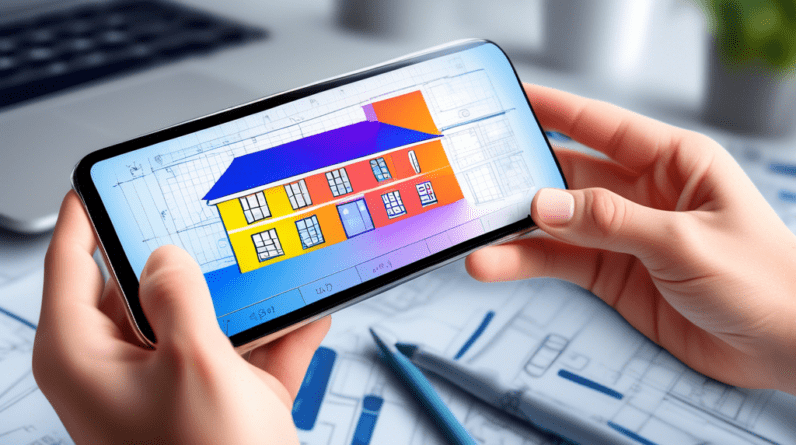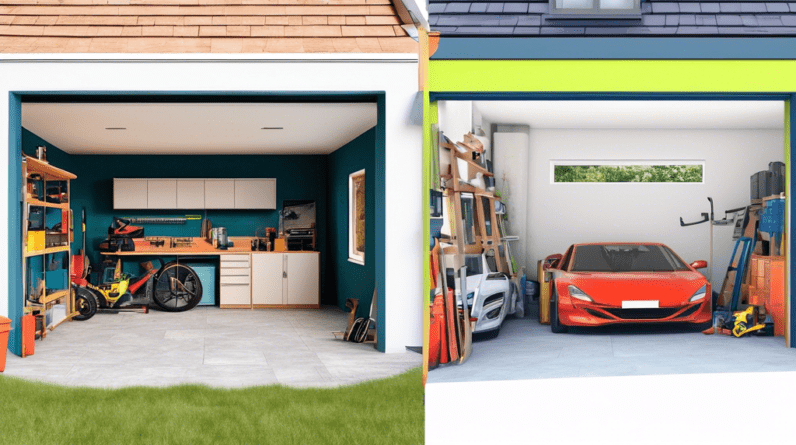
Transform Your Garage: A Comprehensive Guide to Garage Apartment Conversion Costs
Are you sitting on untapped real estate potential? Converting your
garage into an apartment offers a fantastic opportunity to add living
space, generate rental income, or accommodate extended family.
However, before diving headfirst into this exciting project, it’s
crucial to understand the financial implications. This comprehensive
guide delves into the costs associated with garage apartment
conversions, empowering you to make informed decisions.
Factors Influencing Garage Conversion Costs
The cost of converting a garage into an apartment can vary
significantly based on a multitude of factors:
1. Garage Size and Existing Structure:
Larger garages naturally translate to higher conversion costs.
Similarly, detached garages generally incur greater expenses compared
to attached ones due to the need for independent utility connections.
2. Location, Location, Location:
Just like with any real estate venture, location plays a pivotal
role in determining costs. Labor and material prices can fluctuate
considerably depending on your geographical region.
3. Desired Amenities and Finishes:
The level of luxury and amenities you envision for your garage
apartment will directly impact the overall budget. Opting for high-end
finishes, appliances, and fixtures will naturally increase expenses.
4. Structural Modifications and Permits:
Garage conversions often necessitate structural modifications such as
adding walls, insulation, windows, and doors. Obtaining the necessary
permits and ensuring compliance with building codes also factor into
the costs.
5. Plumbing and Electrical Upgrades:
Creating a functional living space requires installing or upgrading
plumbing and electrical systems. The extent of these upgrades will
depend on the garage’s existing infrastructure and the apartment’s
intended use.
6. HVAC and Insulation Considerations:
Ensuring year-round comfort in your garage apartment necessitates
adequate heating, ventilation, and air conditioning (HVAC) systems.
Proper insulation is also crucial for energy efficiency and
temperature regulation.
Average Garage Conversion Costs: A Breakdown
While providing precise cost estimates without a detailed assessment
is challenging, here’s a general breakdown of average expenses for
different aspects of a garage conversion project:
Foundation:
Expect to spend between $5,000 and $20,000, or even
more, on foundation work, especially if your garage lacks a proper
concrete slab.
Framing:
Framing costs, which include adding walls, ceilings, and structural
supports, can range from $10 to $30 per square foot.
Roofing:
If your garage requires roof repairs or replacement, factor in an
additional $5,000 to $15,000.
Plumbing:
Installing a bathroom and kitchen sink will cost approximately
$2,000 to $10,000 or more, depending on fixture
choices and existing plumbing infrastructure.
Electrical:
Upgrading the electrical panel, adding outlets, and installing lighting
can range from $5,000 to $15,000.
Insulation:
Proper insulation is crucial for energy efficiency and comfort. Budget
around $1 to $3 per square foot for insulation
materials and installation.
Drywall:
Installing drywall typically costs between $2 to $5 per
square foot, including labor and materials.
Flooring:
Flooring options vary widely in price. Expect to pay anywhere from
$3 to $20 per square foot depending on the chosen
material.
Painting:
A fresh coat of paint can transform the space. Allocate
$2 to $6 per square foot for painting costs.
Windows and Doors:
Adding windows and doors enhances natural light and ventilation. Costs
can vary significantly based on size, style, and energy efficiency
ratings.
Appliances and Fixtures:
Equipping your garage apartment with essential appliances and fixtures
like a refrigerator, stove, oven, dishwasher, and bathroom fixtures can
add $5,000 to $20,000 or more to your budget.
Permits and Professional Fees:
Don’t forget to factor in the costs of obtaining necessary permits
and hiring qualified professionals such as architects, contractors, and
engineers. Permit fees vary by location, while professional fees
typically range from 10% to 20% of the total
project cost.
Cost-Saving Tips for Garage Apartment Conversions
While garage conversions can be a significant investment, several
strategies can help you save money without compromising quality:
1. DIY Where Possible:
If you possess the skills and experience, tackling certain tasks
yourself, such as demolition, painting, or installing flooring, can
significantly reduce labor costs.
2. Source Materials Wisely:
Shop around for competitive prices on building materials. Consider
using reclaimed or salvaged materials for added character and
affordability.
3. Optimize Existing Infrastructure:
Utilizing existing plumbing and electrical connections whenever
possible can minimize the need for extensive and costly upgrades.
4. Choose Affordable Finishes:
Opting for durable yet budget-friendly finishes, such as laminate
flooring or open shelving, can help you stay within budget without
sacrificing style.
5. Prioritize Energy Efficiency:
Investing in energy-efficient windows, insulation, and appliances
might increase upfront costs but can lead to significant long-term
savings on utility bills.
Financing Your Garage Conversion
Several financing options are available to fund your garage conversion
project:
1. Home Equity Loans and Lines of Credit:
If you have equity in your home, tapping into it through a home
equity loan or line of credit can provide access to funds at
competitive interest rates.
2. Personal Loans:
Personal loans offer unsecured financing options, but they typically
come with higher interest rates compared to home equity loans.
3. Cash-Out Refinancing:
Refinancing your mortgage and taking out a portion of your home’s
equity in cash can be a viable option for larger conversion
projects.
4. Government Programs:
Explore potential government programs or incentives that offer
financial assistance for home improvement projects, including garage
conversions.
Conclusion
Converting your garage into an apartment is an excellent investment
that can provide numerous benefits, including increased living space,
potential rental income, and enhanced property value. By carefully
considering the factors influencing costs, exploring cost-saving
strategies, and securing appropriate financing, you can embark on this
transformative journey with confidence. Remember to consult with
qualified professionals to ensure a successful and code-compliant
conversion project.






